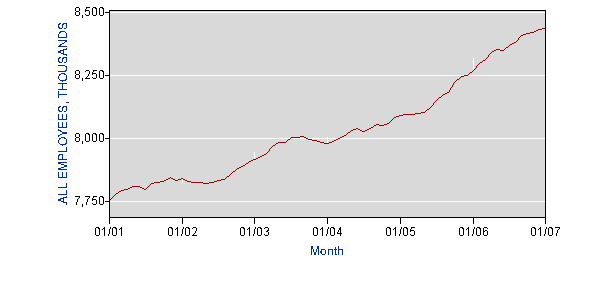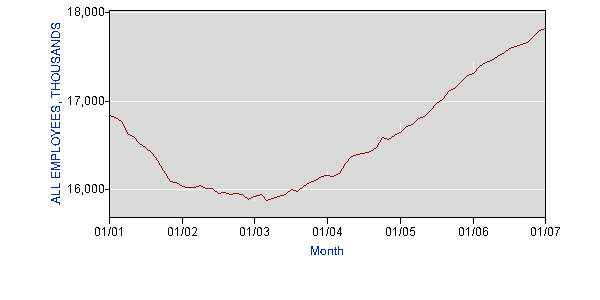Countrywide Financial Corp. and New Century Financial Corp. led shares of mortgage companies down for a third day as rising defaults drove the perceived risk of owning bonds backed by ``subprime'' loans to a record high.
Shares of Irvine, California-based New Century, the second- largest company that specializes in lending to people with low credit ratings, fell $1.01, or 5.5 percent, to $17.21 in New York Stock Exchange composite trading. Countrywide, based in Calabasas, California and the nation's biggest home lender, fell $1.37, or 3.3 percent, to $40.84.
Subprime loans that have gone bad are at the highest level in at least six years, according to a Friedman, Billings, Ramsey Group report. The U.S. Mortgage Bankers Association said payments were late on almost 13 percent of subprime loans in the third quarter of 2006, and Bear Stearns Cos. President Warren Spector predicted last week problems will get still worse this year.
``There's just a lot of uncertainty,'' said Richard Eckert, an analyst at Los Angeles-based Roth Capital Partners. ``The market reacts a lot more hostilely to uncertainty than it does to bad news.''
13% of loans were late. That's an extraordinarily high amount of loans going bad. And we are just beginning to see the problems with the 2006 vintage loans. I would expect those numbers to really hit home in the next 9-12 months.
Here's where this will really start to hit home: jobs. If memory serves, the Blog Calculated Risk has projected construction job losses in the 200,000 - 400,000 range. Let's look at job growth in two other areas:
Financial services (mortgage lenders):

And Professional jobs (real estate brokers)

Let's assume for a minute that 10% of the above created jobs are related to real estate (actually, I have no idea what the actual percentage is). Eyeballing the professional services chart gives us about 1.8 million jobs and doing the same for financial services we get 500,000 from trough to peak. Neither of these areas has seen any major downturn in the last year. 10% of each sector gives us a total of 230,000 jobs. That's not good going forward.